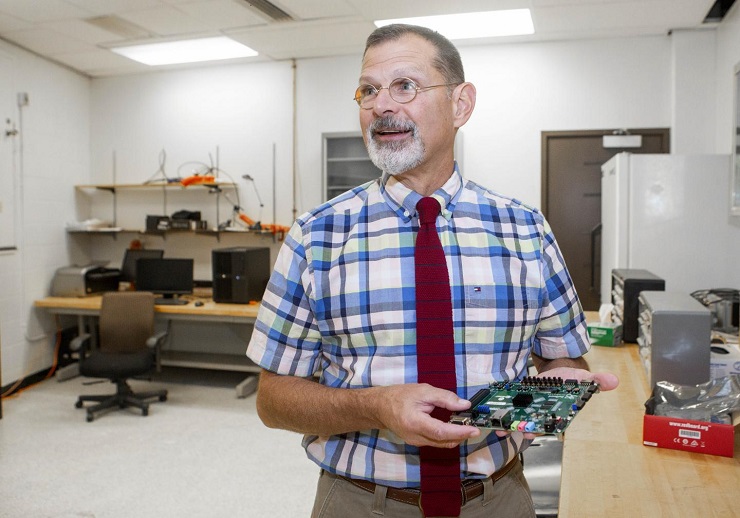ENGINEERING
UC engineering prof. John 'Marty' Emmert leads new research center for hardware security risks
Six American universities will work with government and industry to thwart efforts by hackers, counterfeiters, and terrorists to exploit security weaknesses in computer chips and other electronics.
The University of Cincinnati will lead a new National Science Foundation research center to protect electronics and networked systems from sabotage, hacking or spying.
The Center for Hardware and Embedded Systems Security and Trust will be UC's latest industry-university Cooperative Research Center. The center will work with the National Science Foundation, the U.S. Department of Defense and industry leaders to conduct research designed to thwart outside attack, UC engineering professor John "Marty" Emmert said.  {module In-article}
{module In-article}
"Building consumer trust in technology is central to our work," said Emmert, who will serve as director of the new center and principal investigator of the project.
The National Science Foundation will fund the center with an initial $4.5 million grant for UC and its academic partners: the University of Virginia, the University of Connecticut, Northeastern University, the University of Texas at Dallas and the University of California, Davis.
The center will work with private companies, government agencies, and nonprofits that will contribute annual membership fees of as much as $50,000 to investigate their unique vulnerabilities. The private members include companies such as financial consultants Booz Allen Hamilton and publisher Wiley.
UC's new center will have its own lab space in UC's College of Engineering and Applied Science. Emmert said the center will be able to harness UC's collective expertise across disciplines in collaboration with the other universities.
Emmert said one pressing problem is finding a way to ensure the authenticity of computer chips. The use of flawed counterfeit circuits could lead to catastrophic failures in aviation, communications or weapons systems.
"The issue most important to industry is IT protection. Part of our mission will be to develop techniques to avoid circuit counterfeiting," Emmert said.
UC professor Marc Cahay, head of UC's Department of Electrical Engineering and Computer Science, said the center's research focus is likely to attract widespread interest.
"The research is very relevant now and of great interest to government and industry. So far, at least 70 companies have expressed interest in participating," Cahay said.
University of Virginia professor James Lambert said the center will work with its industry partners to address security risks.
"Vulnerabilities to cyberattacks can be introduced during design, manufacturing or any stage of the product lifecycle," Lambert said. "By working with industry and government partners to understand what the real issues are and to ask the right questions, we are helping to address security, assurance, and trust across all stages."
